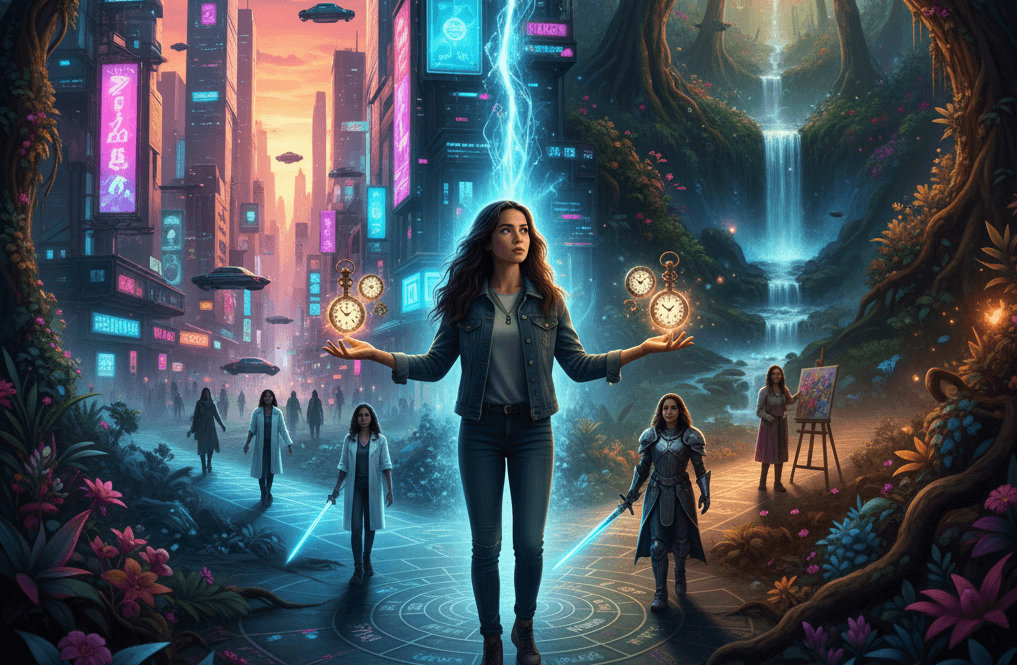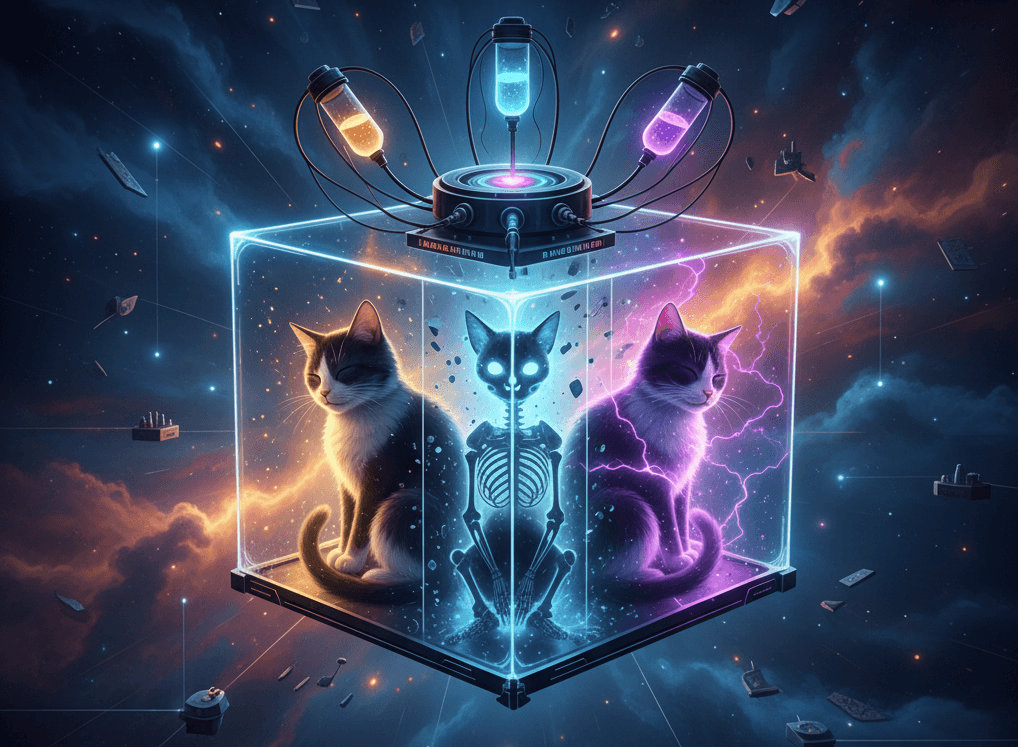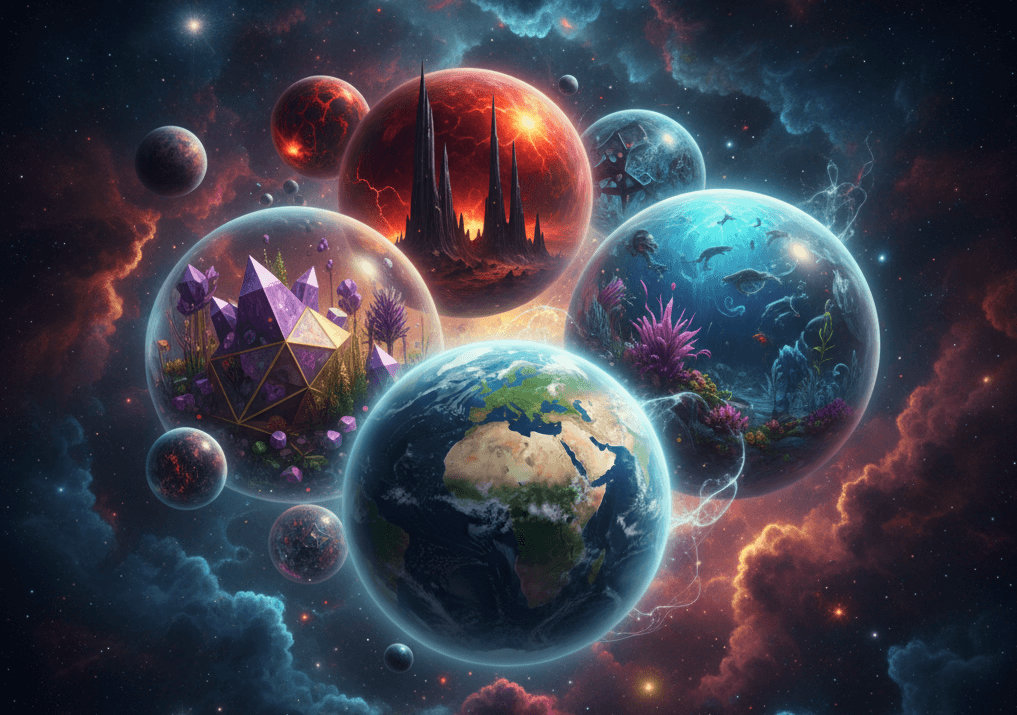People have been interested in parallel universes for a long time, thanks to ancient philosophy, cutting-edge quantum mechanics, and the creative power of science fiction. The main question at the heart of this mystery is: Is our universe the only one, or are there many other realities that exist alongside ours? This question makes us think about who we are, what will happen to us, and even our moral responsibility. It sparks debates in both science and society.
Brian Greene, a physicist, says that "there may be many other universes that exist alongside our universe." This possibility is not just an academic interest; it changes the way we see reality, choice, and consequence.
Scientific Ideas About Parallel Universes
Modern physics presents various theories to elucidate parallel universes, frequently referred to as the multiverse. Cosmologist Max Tegmark says that these theories can be put into four main groups:
Level I: Beyond Our Cosmic Horizon
In the Level I scenario, the universe goes on forever and makes Hubble volumes, which are areas that are like ours. In this vast space, every possible arrangement of particles happens. This means that there are parallel versions of Earth and ourselves in faraway space. This is based on cosmological inflation and is the least controversial version.

Level II: Other Bubbles That Happen After Inflation
According to the theory of chaotic inflation, there are "bubble universes," each with its own physical laws, dimensions, and constants. These universes are separate from our own and may never be seen. String theory's "brane theory" also suggests that there are multiple universes on membranes in higher dimensions that may occasionally interact through cosmic collisions.
Level III: Quantum Many Worlds
The Many-Worlds Interpretation (MWI) of quantum mechanics is probably the most confusing. MWI says that every quantum event causes a split, and that all possible outcomes happen, each in its own universe. Every time a decision is made, like whether to have tea or coffee, the universe splits into two, making a new world for each outcome.
This makes for the mind-blowing thought that there are an infinite number of versions of you, each living out every possible version of your life.
Level IV: Different Types of Math Structures
Tegmark's last level says that every set of mathematical laws creates its own universe. In this context, reality is delineated not by physical constants, but by mathematical possibility, thereby extending speculation to its utmost philosophical boundary.
What Do We Really Know About Evidence and Limits?
Even though multiverse theories are beautiful, direct experimental evidence is still hard to find. Some researchers have posited that anomalous cosmic background radiation or neutrino experiments may serve as potential indicators of alternate universes; however, these assertions remain highly contentious and unverified. Most physicists concur that the existing endorsement for parallel universes is theoretical and philosophical, rather than empirical.

For instance, the ANITA experiment's discovery of high-energy neutrinos was sensationalized as evidence of a parallel universe, but a closer look shows that there is no strong proof. Also, some studies of the microwave background suggested that there might be collisions with other universes, but more accurate measurements later proved this wrong.
The Many-Worlds Interpretation: Does Every Choice Create a New World?
The Many-Worlds Interpretation says that every quantum event splits reality, making a new universe for each possible outcome. So, even the smallest choice, like what to have for breakfast, could create a new universe. But what does this view mean by "choice"? Not only human choices, but every quantum event, including particle interactions.
This perspective suggests that every conceivable iteration of your life is present in some form. Famous paradoxes, like Schrödinger's cat, are given new life: the cat is alive in one universe but dead in another.
The MWI is still controversial, though, because it is based on philosophy and math but is almost impossible to test in real life. Recent experiments involving photons indicate difficulties in interpretation but have not conclusively disproven it.
Criticism and Objections to the Multiverse
Philosophically and scientifically, multiverse theories are heavily criticized:
- Lack of Falsifiability: Critics contend that parallel universes, being inherently unreachable and unobservable, do not meet the criteria of empirical science.
- Ockham's Razor: Some say that saying there are infinite universes adds more things than are needed.
- Anthropic Reasoning: Some multiverse theories use the fact that we live in a universe that is good for life as an explanation, which some people think is circular reasoning.
- Energy Conservation Paradox: Some critics think it's silly to say that everyday choices can make whole universes with a lot of energy, which goes against the laws of physics.
Even though some people disagree, supporters like Max Tegmark say that some models, like Level I, are valid cosmological predictions and therefore scientifically sound.
The Philosophical and Moral Effects of Parallel Universes
What implications does the notion that every choice creates a new world have for free will, morality, and personal identity? Philosophers have contended both in favor of and against the notion that moral responsibility is compromised in a multiverse, as for every unethical action, a moral alternative exists in another realm.

This creates an ethical dilemma: Should we be concerned about our parallel selves? In reality, responsibility is grounded in our lived experiences; morality does not transcend universes, as each iteration is unique. Some contend that if everything transpires in some context, actions become devoid of significance; others assert that moral values are retained within each universe. The issue of identity becomes indistinct, presenting intriguing philosophical dilemmas.
There are also very important religious implications. If multiple worlds exist, conventional concepts of fate, divinity, and the significance of suffering are fundamentally altered.
In Pop Culture: Parallel Universes
Many works of fiction have been inspired by the idea of a multiverse. Parallel universes give writers and artists a lot of room to be creative. For example, Philip K. Dick's "The Man in the High Castle" and the Marvel Cinematic Universe's multiverse storylines. The idea of the multiverse makes people both hopeful and afraid, and science fiction shows how small changes can lead to big differences.
Movies like "Sliding Doors," books, and new streaming shows make multiversal speculation more popular, making it a strong metaphor for how things can change and what happens in real life.
Conclusion: Reality, Science, and Imagination
Parallel universes continue to occupy the forefront of scientific conjecture, philosophical discourse, and imaginative narrative. The notion that every choice spawns a new world is an enticing narrative; however, the evidence remains theoretical and has not yet reached a definitive conclusion. Someday, scientific progress may push the limits of reality, but for now, parallel universes are a powerful way to think about fate, morality, and the endless possibilities of life.
Whether parallel universes exist or not, the concept challenges us to think deeply about the nature of reality, consciousness, and our place in the cosmos. It reminds us that the universe-or multiverse-may be far stranger and more wonderful than we can currently imagine.